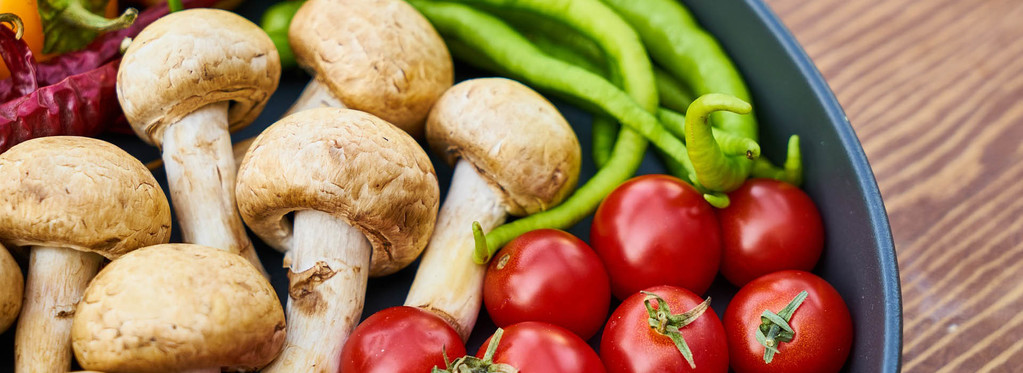Believe it or not, there is some argument about whether mushrooms are considered a vegan-friendly food or not. Today I’m going to provide you with some compelling arguments for why they are.
Are mushrooms vegan? Most people consider mushrooms a vegan food source since they are categorized in the Fungi kingdom, not the Animalia kingdom. Mushrooms don’t have a central nervous system in the way that animals do, so most people feel that eating them is not cruel or exploitive. They can be grown sustainably without the use of any animal byproducts.
Mushrooms represent a tasty and nutritious food option for both vegetarians and vegans. In this article, I’ll explain what it means to be vegan, and discuss various points on why mushrooms may or may not be considered vegan.
By the end, I hope you will agree with me that mushrooms are a vegan-friendly food.
What Does It Mean To Be Vegan?
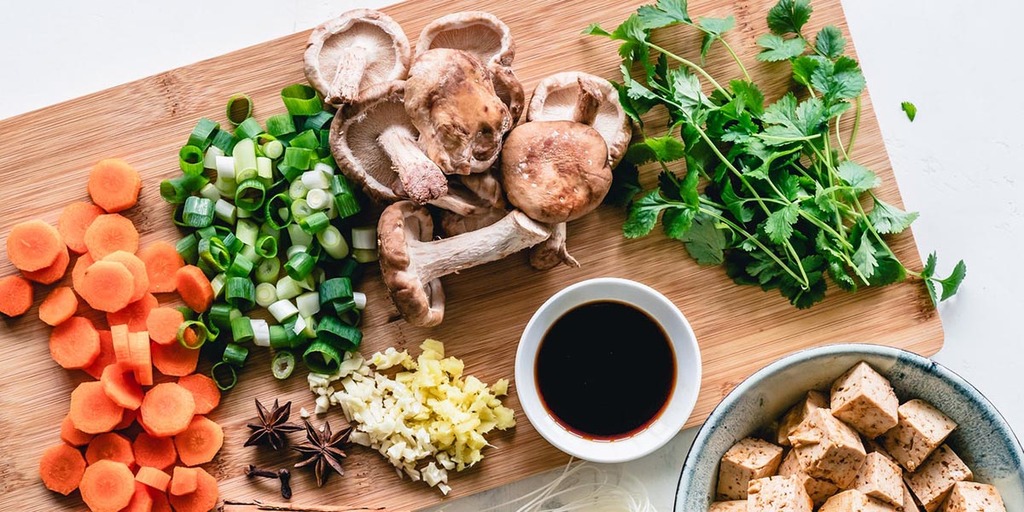
Before we can determine if mushrooms are vegan or not, first we need to establish what a vegan is.
In simple terms, a vegan is someone who doesn’t eat or use any animal products. That means they don’t eat meat, and they also don’t use animal byproducts like milk, honey, or leather.
There are a number of reasons why someone might choose to live a vegan lifestyle.
They may do it for health reasons. Or they may do it for ethical reasons, because they don’t view eating meat or using animal products as being morally right.
Other vegans may do it for environmental reasons, citing industrial farming of animals as being unsustainable and environmentally damaging.
Mostly it’s people who are vegan for ethical reasons that are likely to have concerns about whether mushrooms are a vegan food option or not.
It’s important to note that we are neither approving nor disapproving of a vegan diet or lifestyle here. That’s a discussion that’s larger than just one article or video.
We are just looking to evaluate whether mushrooms are a vegan-friendly food or not.
Mushrooms are a really nutritious and tasty type of food. So it would be a shame to remove them from your diet on false pretenses.
What Are Mushrooms? Plants, Animals, or Other?
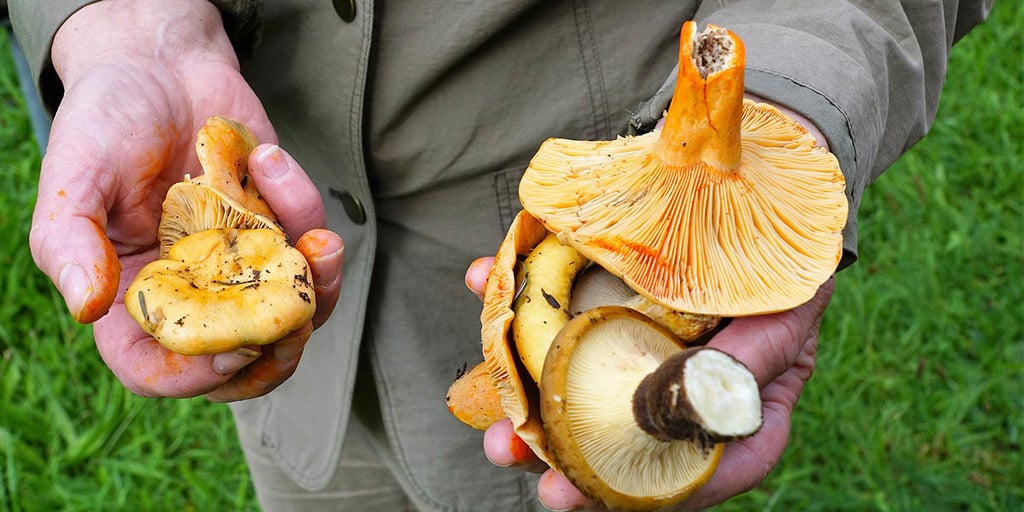
Are mushrooms considered to be meat or vegetables? Well, the truth is that they’re neither. This is where some of the confusion can arise as to whether mushrooms are vegan or not.
On a cellular level, you could argue that fungi have more in common with animals than plants. This is because their cell walls are made of chitin, as opposed to the cellulose that makes up the cell walls of most plants.
Chitin is the same component that makes up the shells of crustaceans like shrimps, crabs, and lobsters.
But once we zoom out from a microscopic perspective, we get a bigger picture of what mushrooms actually are.
Living things are put into categories called kingdoms by biologists. Plants are one kingdom. Animals are another kingdom. And mushrooms fall into a separate fungi kingdom which also includes yeasts and molds.
The main factor that vegans use to determine if they’ll eat something is whether it comes from a living thing that’s biologically classified as an animal.
Since mushrooms are fungi and not animals, I feel that it’s safe to classify them as a vegan food based on those criteria.
If fungi, in general, are considered non-vegan, then those vegans would also have to give up all baked goods like bread that are risen using yeast.
If vegans have concerns about eating all types of fungi, then there would also be concerns about removing a fungus infection from their feet, using mouthwash when they have a sore throat, or washing their hands which kills millions of fungi spores and bacteria.
When it comes to taste, mushrooms fall somewhere between plants and animals. They offer many of the health benefits of plants, and give you that meaty flavor and texture without the added fat and cholesterol.
If you’re still not convinced and feel that fungi occupies a weird in-between grey area between plants and animals, let’s look at some other factors as well.
Can Mushrooms Feel Pain?
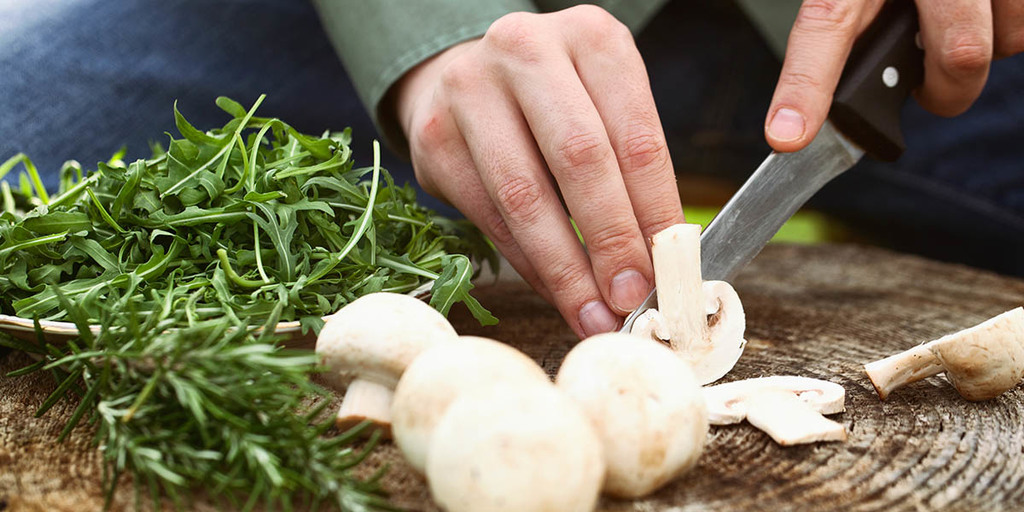
A big part of the vegan argument against eating meat is that raising and killing livestock leads to unnecessary suffering and pain.
Since mushrooms don’t have a central nervous system, they aren’t able to feel pain. They are about as conscious as a plant is.
Mushrooms don’t show any signs of distress when they’re plucked from the ground, chopped up, or eaten.
Also, consider the fact that the mushroom you see isn’t actually an entire organism. It’s just the fruiting portion of a network of mycelium that lives deep under the ground.
So picking a mushroom is more like the equivalent of plucking a ripe apple off of a tree, rather than killing the entire tree itself. The main body of the fungus continues to live and thrive even when the mushrooms are gone.
So we can say that mushrooms don’t experience the same kind of suffering that animals are capable of.
There is even some debate among vegans as to whether they’ll eat mollusks like mussels. These are technically animals, but they don’t have brains or a central nervous system either.
I would personally argue that mushrooms are a lot closer to plants than mussels or clams are.
When you harvest and consume mushrooms, you aren’t causing the kind of suffering that is arguably present when raising and slaughtering livestock.
Are Animal Parts Used In Growing Mushrooms?
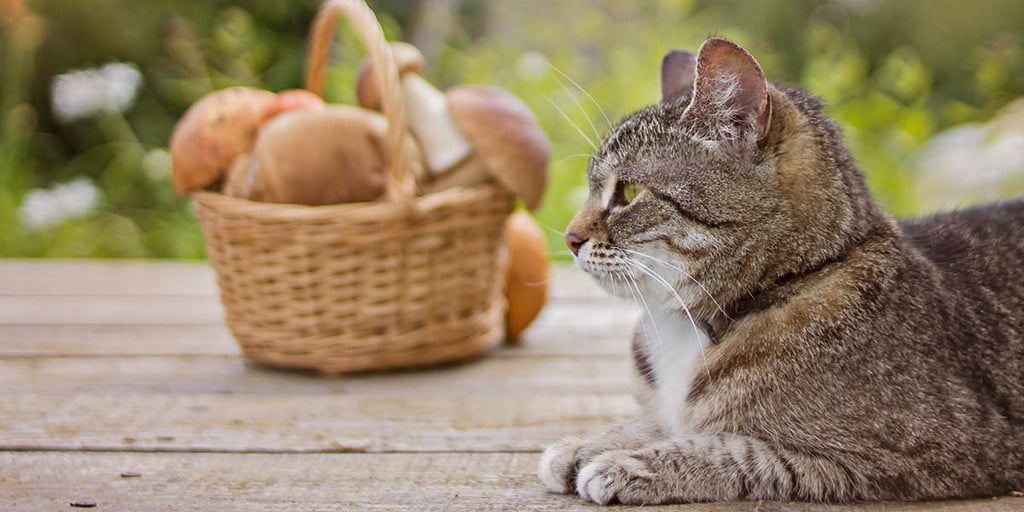
Some vegans may not want to eat mushrooms since they could potentially be grown using animal products.
For example, some mushrooms may be grown on animal manure. Some mushroom growing operations may also start their spawn by growing it in gelatin.
This same argument could be made for many vegetables as well. Some plants like avocados aren’t able to become pollinated without the help of bees.
Since honey is considered non-vegan because it comes from bees, I could argue that bee-pollinated plants also aren’t vegan, since they exploit the work of animals.
Many vegetables are also grown using fertilizer or compost that’s made of animal waste or bones.
When you’re shopping for vegetables in the grocery store, it’s hard to know if vegetables were grown in a completely vegan way or not. Even organic farms are allowed to use natural fertilizers like chicken manure.
Many types of mushrooms like oyster mushrooms can be grown in a completely vegan way. They are typically grown on straw, sawdust or coffee grounds. So it’s very possible to produce 100% vegan mushrooms.
Are Mushrooms Bad For The Environment?
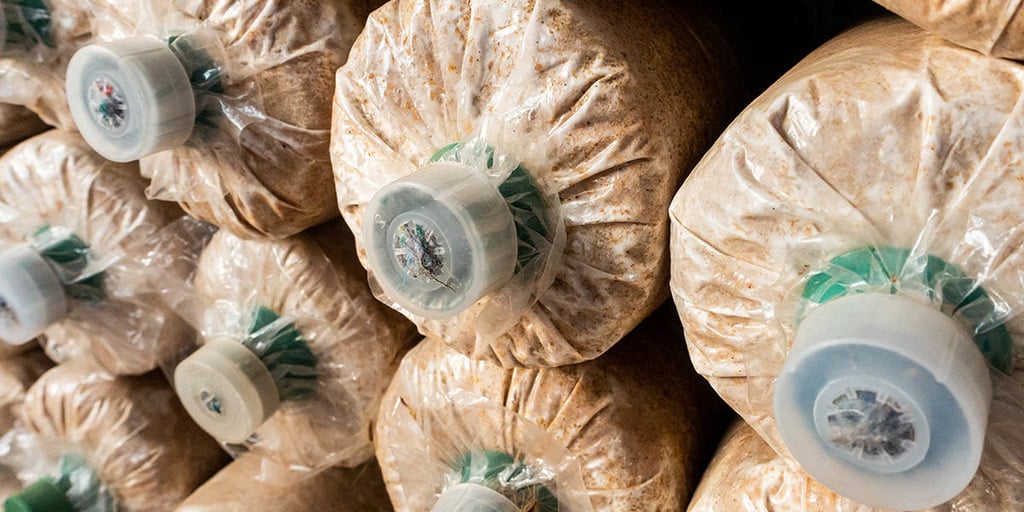
If you’re a vegan for environmental reasons, then you might be more concerned about whether mushroom farming practices are sustainable or not.
Many mushrooms like morels, truffles, and others are foraged for in the wild. This means they’re part of the natural ecosystem and don’t have any negative impacts on the environment when harvested this way.
Some types of mushrooms are difficult or nearly impossible to cultivate in farm settings, so they can only be harvested from the wild.
Wild mushrooms help break down dead wood and other organic matter to turn it back into nutrient-rich soil.
When mushrooms are grown by farmers, that might be a bit of a different story. There is a small carbon footprint associated with creating the indoor conditions necessary to grow mushrooms.
The light, humidity levels, and other factors need to be controlled, which takes some electricity. Usually, plastic bags are used to hold the substrate and mycelium, which can’t be reused.
However, aside from the plastic, the substrate can be completely composted and turned into a rich soil.
When comparing the production of mushrooms to other farming practices, mushrooms don’t have a massive negative impact on the environment.
Especially when compared to conventional agriculture that uses diesel-powered tractors and other equipment, or raising livestock.
In fact, it’s estimated that mushrooms are one of the most sustainable sources of protein on the planet. They use much less water, energy and land than almst any other crop.
Check out our video on this topic for more info:
If you are interested about sustainable agriculture farming you can read more in our guide to regenerative agriculture practices.
Mushrooms – Tasty and Nutritious
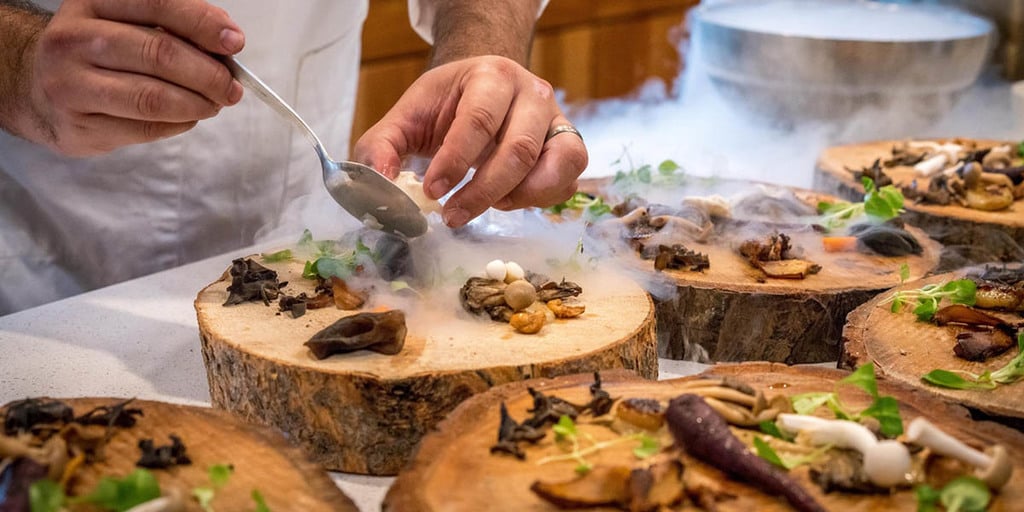
Beyond the ethical, environmental, and other impacts that mushrooms can have, it’s worth looking at whether they’re even worth eating at all.
And to that, I would say the answer is a resounding yes!
Mushrooms are a great addition to the diet for vegans and vegetarians. They are one of the few non-animal sources of vitamin D, and they also contain B vitamins and varying amounts of fiber and protein.
For former meat-eaters who miss the flavors from their old diet, mushrooms can provide a rich umami or meaty flavor, as well as a similar texture too.
Mushrooms are a very versatile cooking ingredient that can be eaten a number of different ways and they’re keto-friendly. You can use a large portobello mushroom cap to make mushroom burgers.
You can chop them up finely to make fancy appetizers. You can concentrate their flavor to make a delicious soup broth or gravy. Or of course, you can slice them up and sautee them as a fantastic side dish. To learn more ways of how to cook mushrooms the right way check these 30 of the best mushroom recipe ideas.
For more detailed information, be sure to check out my article on the Health and Nutritional Benefits Of Mushrooms.
Do Mushrooms Have A Vegan Diet?
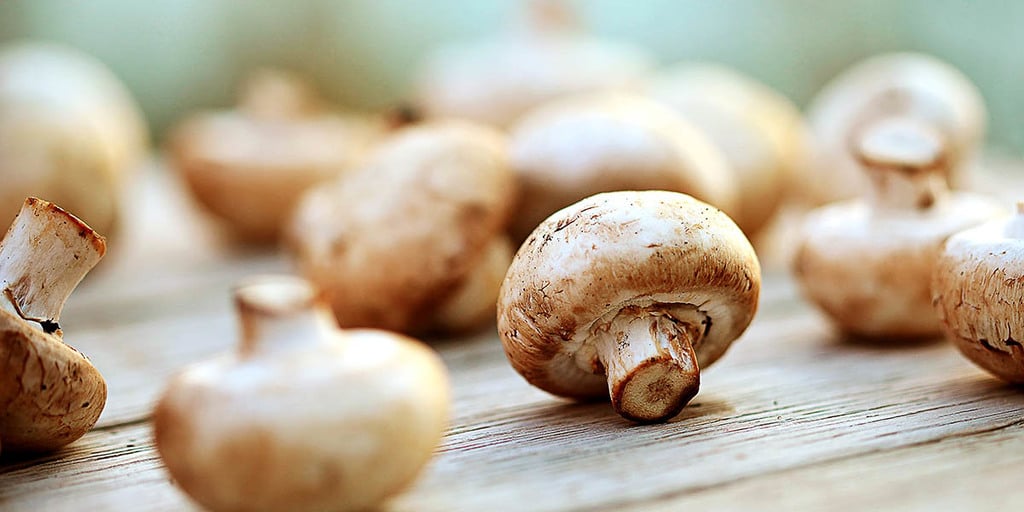
Plants are different from animals and fungi since they can produce most of their nutrients from sunlight. Neither animals or fungi can do this. So instead, these organisms rely on consuming other plants and animals.
This can add another layer of confusion to whether mushrooms are vegan are not. Some mushrooms get all of their nutrients from plant-based sources. Other types of fungi may grow on decaying animals or manure.
Luckily, most types of mushrooms that humans contain don’t tend to grow on these mediums.
Even better, when mushrooms are farmed by humans instead of growing in the wild, their growing medium can be specifically controlled to ensure that it doesn’t contain any animal products.
So if you are vegan and looking to avoid mushrooms grown on animal by-products, you can pick mushrooms from suppliers that grow using only plant matter.
If you buy your mushrooms locally at a farmer’s market or direct from a grower, you can ask to see what they’re growing their mushrooms on.
That way you can ensure they weren’t grown using manure or other animal by-products.
Mushrooms are very nutritious and healthy so you can also choose Medicinal Mushroom Extracts and Supplements.
Oyster Mushrooms – A Special Case
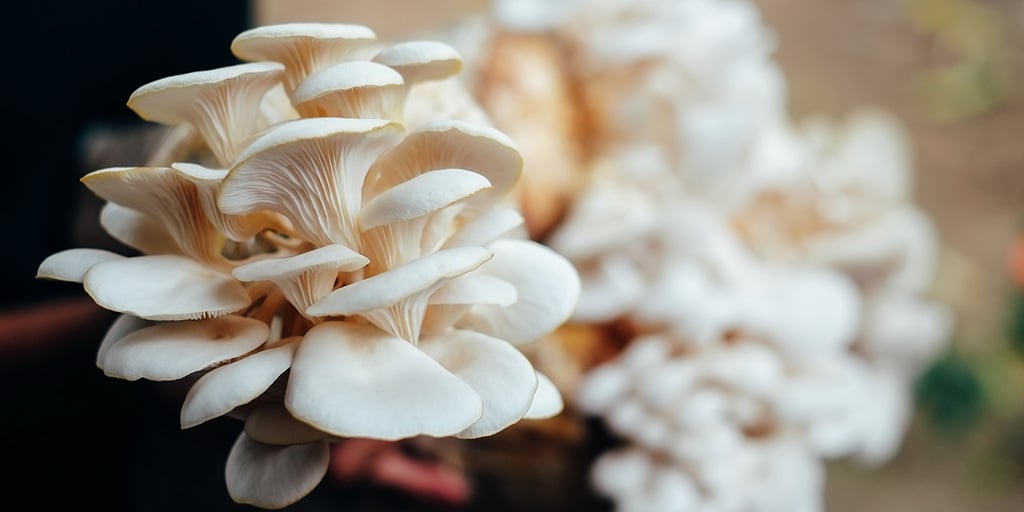
You could argue that some mushrooms that live on wood like oyster mushrooms are arguably less vegan than other varieties. It’s not because of the word oyster in their name either.
In nature, oyster mushrooms live on dead wood. Wood contains much less available nitrogen when compared to soil.
So compared to other types of mushrooms that live in the earth, woody mushrooms need to find other more creative sources of nitrogen.
In the 1970s, mycologists (mushroom scientists) discovered that oyster mushrooms can attract and feed on small roundworms and other nematodes.
So in some sense, these mushrooms act as predators and eat small multi-celled organisms in the Animalia kingdom. You could argue that wild oyster mushrooms are not vegan because of this.
Even among vegans, this is kind of a grey area.
Like I mentioned earlier, even with organic vegetable farms, we can’t be sure that the soil doesn’t contain things like dead insects or earthworms that the plants are absorbing through their roots.
All plants can also live in soil that contains decomposing animal matter.
This is also a bit of a non-issue when it comes to commercially-grown oyster mushrooms as opposed to wild ones.
Farmed mushrooms are commonly grown on nitrogen-rich coffee grounds, which means that oyster mushrooms can get all of the nutrients they need without having to feed on small animals.
Grow Your Own Vegan Mushrooms
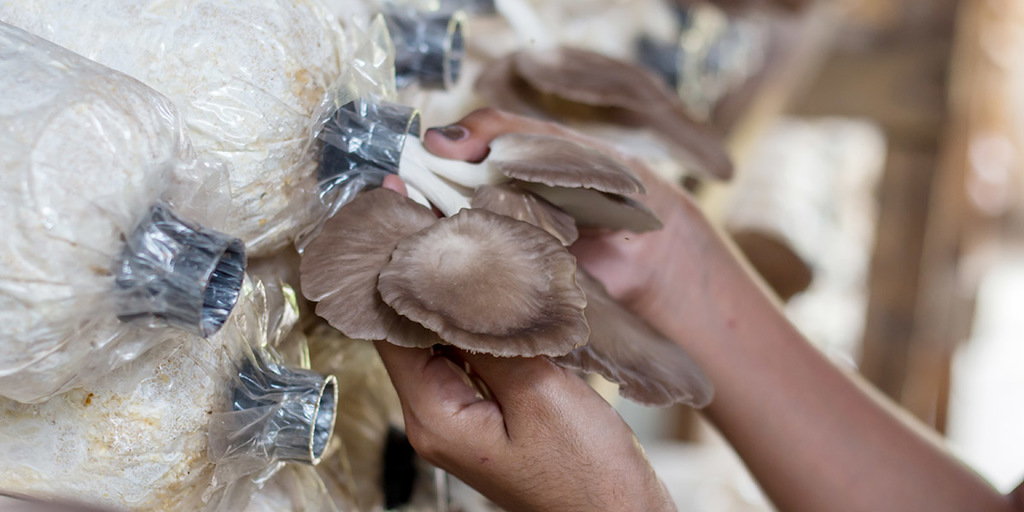
If you love eating mushrooms but you’re worried about the potential negative aspects associated with harvesting them from the wild, or buying farmed mushrooms, why not try to grow your own?
You can easily produce your own delicious organic mushrooms to your own specifications at home.
You can grow your own mushrooms completely organically without the use of any toxic chemicals or substances, and you can ensure that they aren’t grown using manure or other animal products either.
Oyster mushrooms are one of the best varieties to grow for beginners. They can grow in a wide variety of different climates and temperatures. You can grow them on logs or stumps, or on cardboard or coffee grounds.
Shiitake mushrooms are another great choice that can also be grown on tree stumps and logs. Although they will take longer to get a harvest than oyster mushrooms.
Some other mushroom species that beginners might want to try growing include maitake, reishi, chanterelles, or lion’s mane.
They can all be grown from kits using coffee grounds, straw, wood chips, or other non-animal organic debris.
To learn more, check out my article How To Grow Mushrooms: The Ultimate Guide.
What Other Fungi In Their Diet Should Vegans Take Into Consideration?
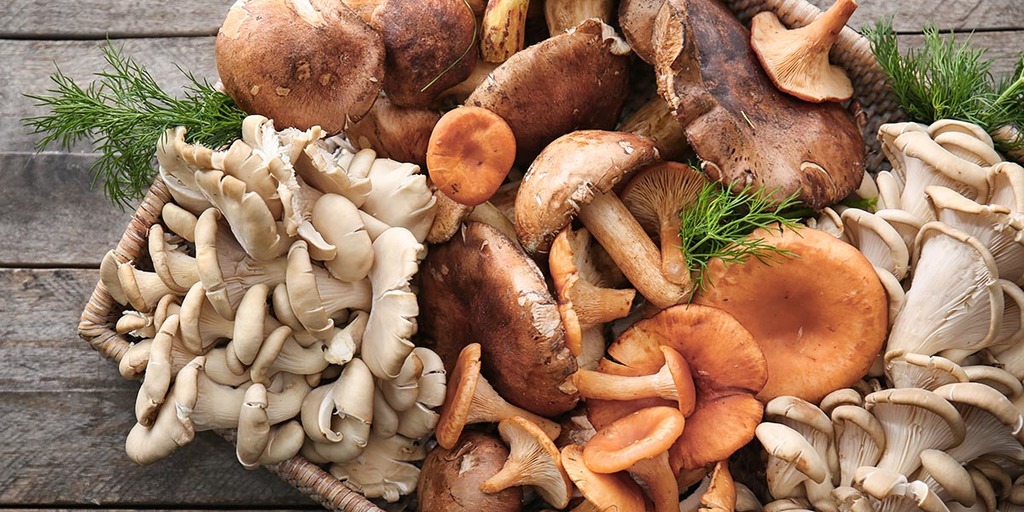
If you’re a vegan and don’t feel that you can justify eating mushrooms, there are many other types of fungi you should also consider. Many may be a part of your diet without you realizing it.
I already briefly mentioned yeast earlier. If you’re removing fungi from your diet entirely, that means you will need to stop eating all bread and other leavened baked goods that use yeast.
You’ll also need to give up many types of alcohol that use yeast in their production, like wine and beer.
Giving up fungi even means many types of important medicine like penicillin may now be off the table for you.
Fungi are used to produce almost too many foods to name. Soy sauce, tempeh, yogurt, kombucha, and many types of cheeses like blue cheese are only possible by fermentation using fungi.
If you aren’t willing to give up all of these products as well, then perhaps it’s worth leaving mushrooms on your plate too!
Check these 25 Of The Best Vegan Mushroom Recipes with which you can easily diversify your diet.
Conclusion
There is some disagreement over whether mushrooms are a vegan food source or not.
My position is that mushrooms are absolutely a vegan food. And hopefully, after reading this article, I’ve convinced you of that as well.
Although it’s ultimately your personal decision whether you think mushrooms are vegan or not. Either way, it definitely makes for an interesting conversation.
My main reasoning for why mushrooms are vegan is the fact that they aren’t animals. A vegan is defined as a person who does not eat or use animal products. So if mushrooms are not animals, therefore they must be vegan.
Mushrooms also don’t have a central nervous system, and the latest science says that they aren’t able to feel pain in the same way an animal does. In that way, they’re much closer to plants than they are to animals.
Mushrooms also aren’t bad for the environment. Plus they can be grown 100% organically and without the use of any animal products.
Many of the most popular edible mushrooms like oyster mushrooms or shiitake do best on wood-based substrates.
Best of all, mushrooms are nutritious and tasty. They offer B and D vitamins that can’t be easily found outside of animal products. And they also offer a meaty taste and texture that is hard to replicate with vegetables.
If you still have questions about mushrooms growing, cooking and storing, you can find them in these articles:
